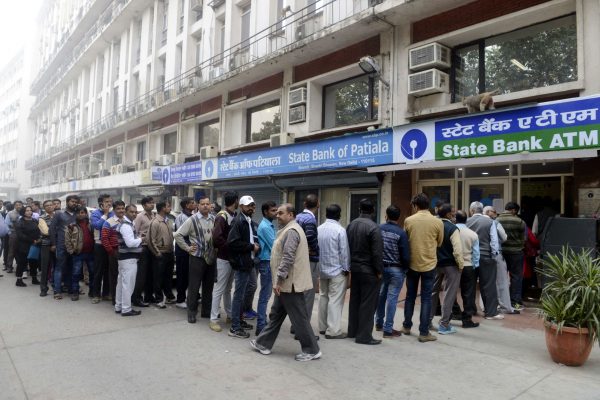

Follow us on:  
|


Will voters who faced long bank queues and other hardships punish the BJP at the polls for assembly seats? [Xinhua]
Polls are closing in the states of Goa and Punjab, both ruled by the country’s ruling Bharatiya Janata Party (BJP) led by Modi.
The polls in Uttar Pradesh and Uttarakhand in the north, and Manipur in the northeast will run from February 11 to March 8.
Results are expected to be announced on March 11.
Voters could punish the BJP which has strongly supported November’s demonetization drive to root out corruption and encourage digital transactions.
But opposition parties and some media pundits say that the demonetization hurt India’s economic dynamo and appeared to create obstacles and difficulties for large swathes of the population who may not have access to digital money.
Economist Subhanil Chowdhury whos is an expert on India’s macro-economy says that demonetization led to a fall in transactions and a standstill in economic activity in many sectors, with the hardest hit being the informal and agriculture economies..
“Textile hubs like Tirupur and Surat and the jewelry market have been badly hit – workers are not being paid wages, lay-offs are taking place and sales have come down drastically, with many enterprises forced to shut down,” Chowdhury says.
Others said the withdrawal of two essential currency notes created chaos and confusion, leaving banks overwhelmed and many frustrated.
Voters could choose to stick with the BJP and Modi despite the demonetization, which dented GDP growth but not substantially.
However, they could also unseat the BJP in favor of rival parties main opposition Congress party and the anti-graft Aam Aadmi Party (AAP) both in Goa and Punjab.
Forty seats are up for grabs in Goa with another 117 in Punjab.
Modi has been appealing to party loyalists to stick to the BJP. On Saturday, he Tweeted:
Urging people of Punjab & Goa to turnout in record numbers & vote in the Assembly elections. I particularly urge my young friends to vote.
— Narendra Modi (@narendramodi) February 4, 2017
The BRICS Post with inputs from Agencies